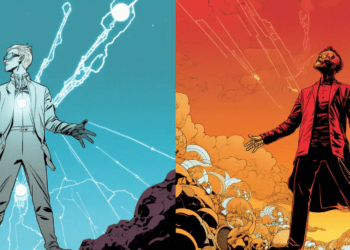Hollywood Strikes Back: Celebs Fight OpenAI & Google Over Stolen Creativity
In a dramatic turn of events, Hollywood’s biggest names are rallying against AI companies, demanding that their creative works remain protected under copyright law. In response to OpenAI and Google’s claims that U.S. law should allow AI models to be trained on copyrighted content without permission or compensation, hundreds of industry professionals have signed an open letter to the White House Office of Science and Technology Policy (OSTP). The entertainment world is making one thing crystal clear: AI shouldn’t be built on the backs of uncredited artists.

Hollywood Strikes Back
The letter, backed by renowned filmmakers, musicians, and actors, highlights the staggering impact of the entertainment industry. With over 2.3 million jobs and an annual contribution of $229 billion in wages, the industry is not just an economic powerhouse—it’s a vital part of American culture and influence. But AI companies, they argue, threaten this creative ecosystem by weakening copyright protections.
“Make no mistake: this issue goes well beyond the entertainment industry, as the right to train AI on all copyright-protected content impacts all of America’s knowledge industries,” the letter asserts.
A-List Protesters: Who’s Taking a Stand?
This isn’t just a niche concern of a few disgruntled artists—some of the biggest names in entertainment have stepped forward. Among the notable signatories are:
- Guillermo del Toro (Guillermo del Toro’s Pinocchio)
- Phil Lord & Chris Miller (The LEGO Movie, Clone High)
- Paul McCartney (yes, that Paul McCartney!)
- Ava DuVernay (Selma, When They See Us)
- Aubrey Plaza (The White Lotus, Parks and Recreation)
- Ron Howard (Apollo 13, A Beautiful Mind)
- Taika Waititi (Thor: Ragnarok, Jojo Rabbit)
- Cynthia Erivo (Harriet, Wicked)
Their collective message? AI shouldn’t strip creators of their rights while tech giants rake in billions.
AI vs. Copyright: The Legal Grey Zone
At the heart of the debate is the question of fair use. OpenAI and Google argue that training AI models on publicly available content should be permissible under U.S. law. Hollywood, however, isn’t buying it. They assert that scraping copyrighted films, music, books, and scripts without explicit permission is theft—plain and simple.
If AI companies win this battle, it could set a precedent that allows massive datasets to be built using any copyrighted content, undermining the legal protections that creators have relied on for decades.
The Future of AI and Entertainment
The AI revolution isn’t slowing down, but neither is Hollywood’s resistance. With major lawsuits already filed by artists, authors, and media companies against AI firms, this fight is only beginning. The outcome could reshape not just entertainment, but every industry that relies on creative intellectual property.
For now, one thing is clear: Hollywood isn’t about to let AI rewrite the script on copyright without a battle. Stay tuned—this legal showdown is just getting started.









